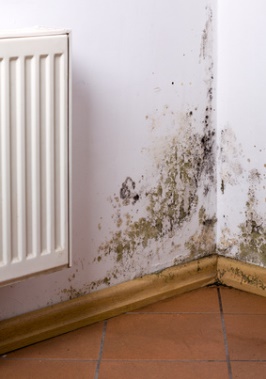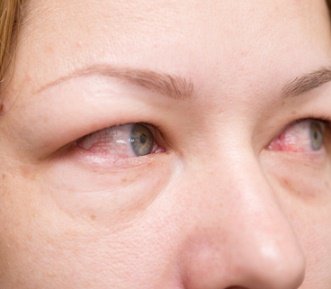Find a pre-screened local mold removal specialist Free Estimate
Find a Mold Specialist Now
Click or Call, Toll-Free 24/7
Eye Issues From
Household Mold Exposure
You might be surprised to learn that exposure to household mold can cause eye issues, including vision problems, in some people. While most of these issues are not serious and are limited to things like itchy or watery eyes, in some cases serious eye infections can develop and visual impairment can even result.
Eye Issues Related to Mold
Many types of mold can cause eye problems, including chaetomium, aspergillus, stachybotrys chartarum and phialophora. Just click on the name of the mold to learn more about that particular type of mold.
Exposure to mold can cause respiratory symptoms and symptoms of an allergic reaction, which include things like itchy eyes, redness of the eyes, and watery eyes. However, more serious issues can occur, including a number of eye infections.
Conjunctivitis, sometimes called “pink eye” because it causes a red or pink coloring of the eye, is a fairly common eye infection. It can be caused by bacteria or viruses as well as mold or other allergens or irritants. Symptoms include itchy, gritty-feeling eyes, a burning sensation in the eyes, watery eyes, copious discharge from the eyes, and sensitivity to light. According to the American Optometric Association (AOA), allergic conjunctivitis (lke that caused by mold) is typically treated with non-steroidal anti-inflammatory drugs (NSAIDs) and antihistamines. Eye drops containing corticosteroids may also be prescribed
Keratitis is an eye infection commonly caused by mold. It is an infection of the cornea, or the clear tissue that covers the iris and pupil. Keratitis can be caused by bacteria, viruses or parasites as well as mold. It may be more likely to occur in people that wear contact lenses.
Mold-related keratitis is typically treated with both oral antifungal drugs and antifungal eye drops. Without prompt treatment, lasting damage to the cornea may result, leading to permanent loss of vision. If that happens, the only way to restore sight would be to receive a corneal transplant. Types of mold known for causing keratitis include curvularia, paecilomyces and phoma.

Endophthalmitis is an inflammation or infection of the intraocular cavities, the fluid-filled spaces in the eye. This can lead to loss of vision. Types of mold known for causing endophthalmitis include fusarium and paecilomyces.
Rhinocerebral mucormycocis, an infection caused by a type of mold called mucor, is one of the more serious eye issues that can result from mold exposure. It is an infection of the eyes, nose and brain. It causes swelling around the eyes and nose, sinus pressure and pain, vision problems, a bad headache, and a high fever. The reason this infection is so serious is because it can affect the brain. Without treatment, brain damage may result.
When to See Your Doctor
If you are experiencing eye issues, whether or not you think they may be related to mold, you should see your doctor right away. Any type of infection or illness that affects your eyes is something to be taken seriously. You don’t want to risk damaging your eyesight. In addition, the eyes are so close to the brain that some infections can easily spread to the brain, which can be very serious or even life-threatening.
We suggest making an appointment with your primary care physician or internist as soon as possible. If only your eyes are affected and you aren’t experiencing any other symptoms of mold exposure, such as respiratory problems, you may prefer to see an ophthalmologist (an eye doctor) instead. In fact, your primary care physician may end up referring you to an eye specialist anyway, depending on your condition. Your primary care physician is always a good place to start, though. If you are having trouble seeing or have a high fever, go to an urgent care facility or an emergency room if you cannot see your physician right away. Be sure to have someone drive you if your vision is compromised.
Treatment will depend on your diagnosis. In addition to medical treatment, you’ll need to arrange to have the mold removed from your home in order to recover fully.
For Help with Mold Removal
If you’re suffering from a mold-related illness severe enough that your vision has been compromised, you probably are not up to removing mold from your home yourself. We suggest scheduling a free in-home consultation with a mold removal professional to discuss your needs. Even if you end up opting to do the work yourself, you can benefit from some free advice from an expert in the field. Follow this link to find qualified mold removal professionals offering free consultations in your area.
Free Home Inspection By A Mold Removal Specialist
Search This Website
 Irritated Eyes From Indoor Mold Exposure
Irritated Eyes From Indoor Mold ExposureRecent Articles
-
See Our 5 Recommended Mold Removal Companies in Covington, KY
Apr 16, 25 12:59 PM
-
See Our 5 Recommended Mold Removal Companies in Wheaton, IL
Jun 20, 24 10:33 AM
-
See Our 5 Recommended Mold Removal Companies in Aberdeen, SD
Oct 08, 21 04:05 PM




